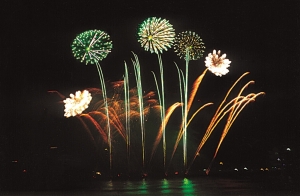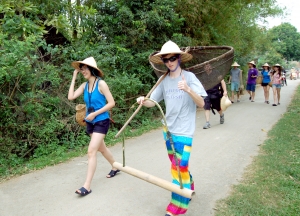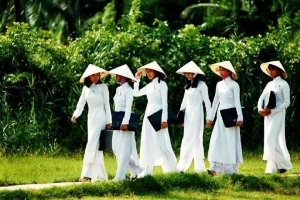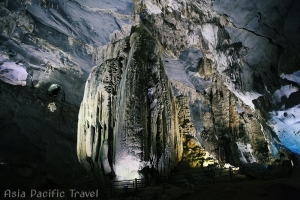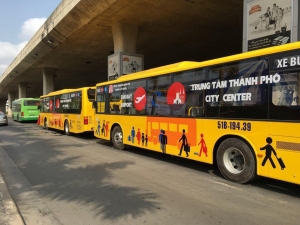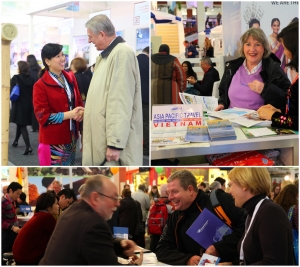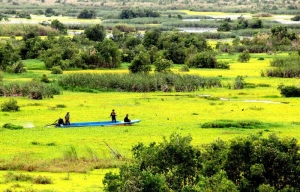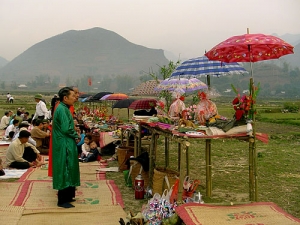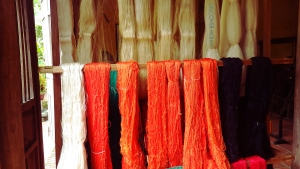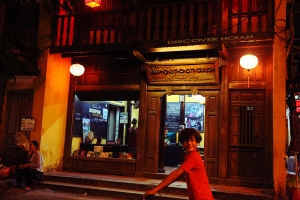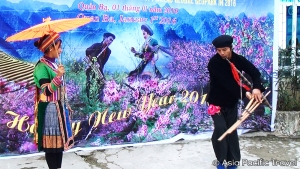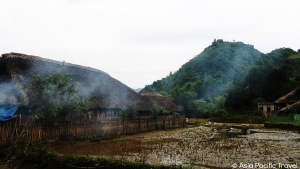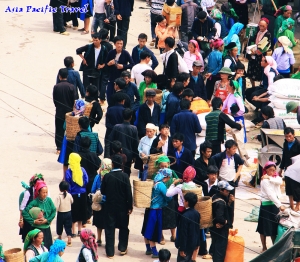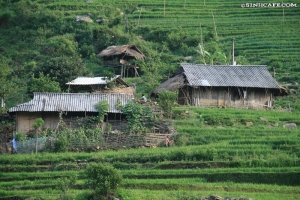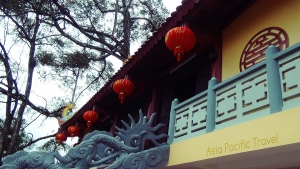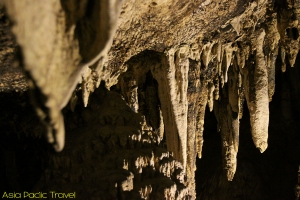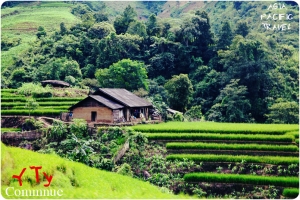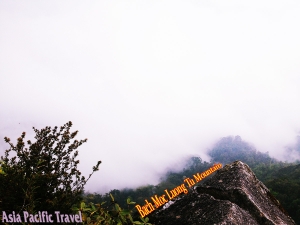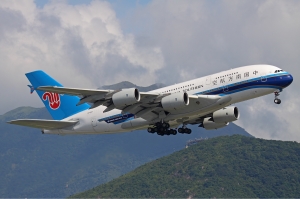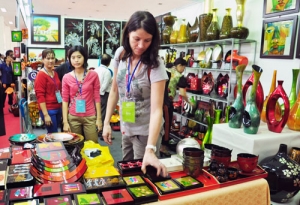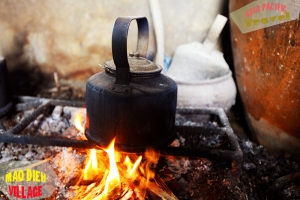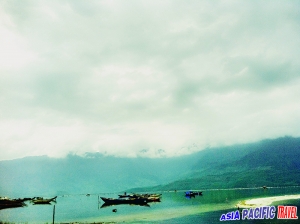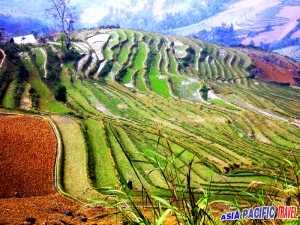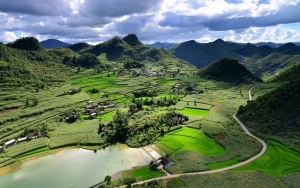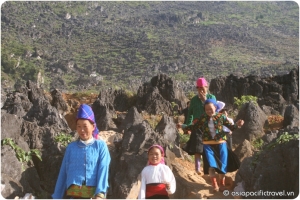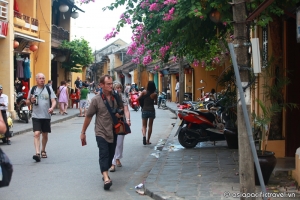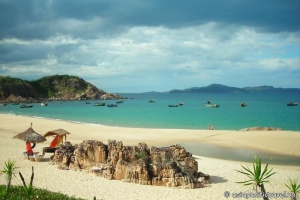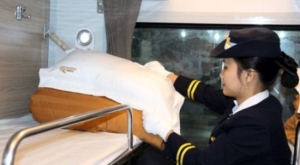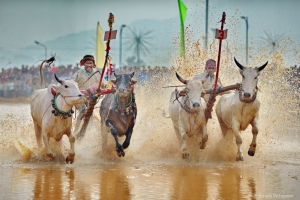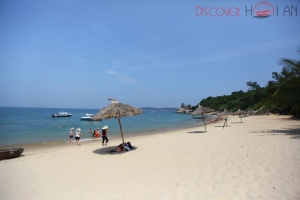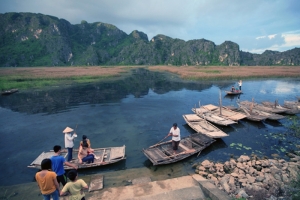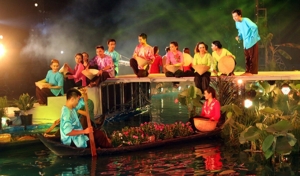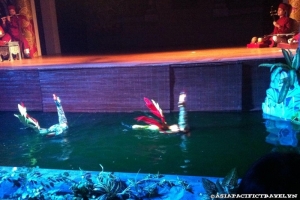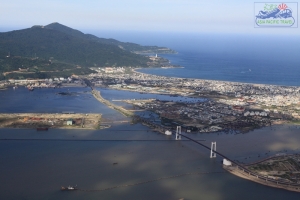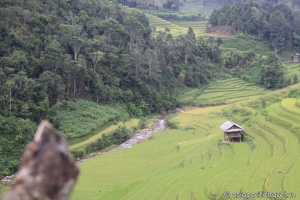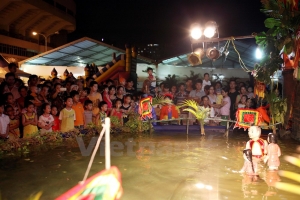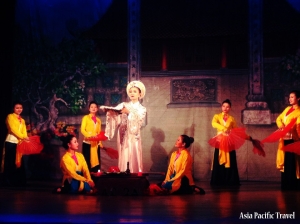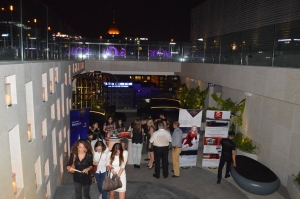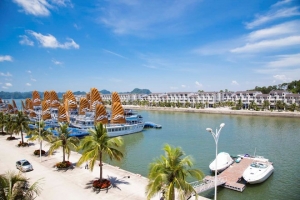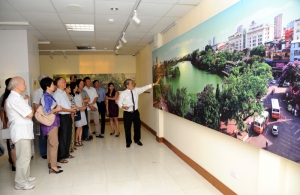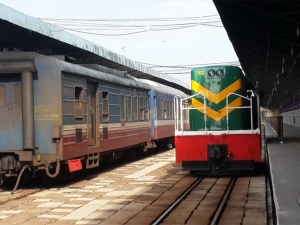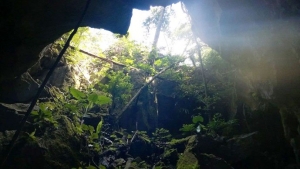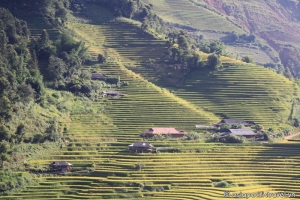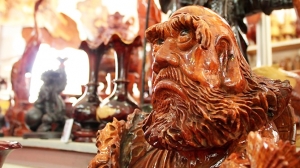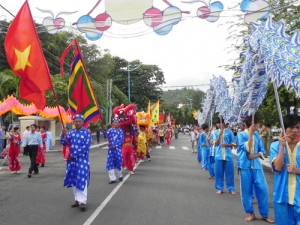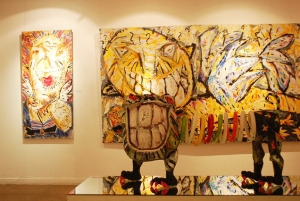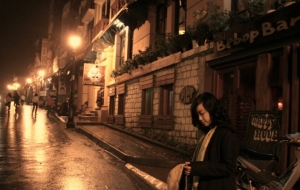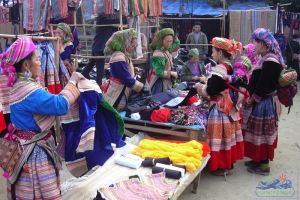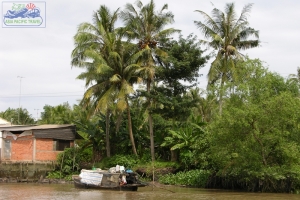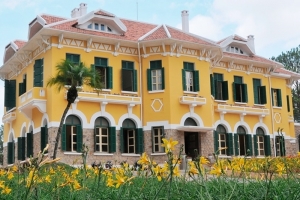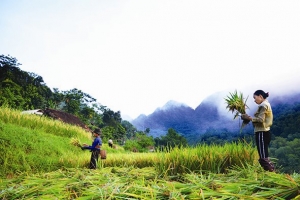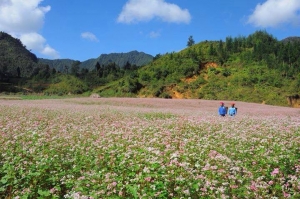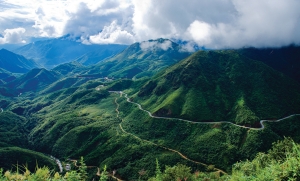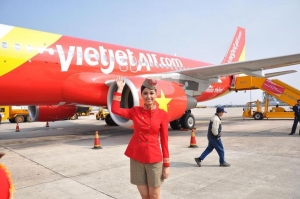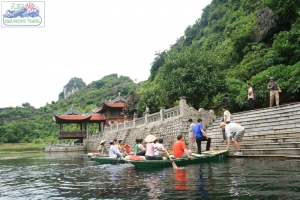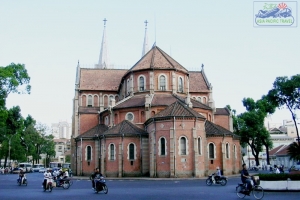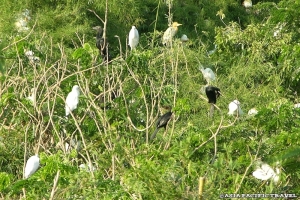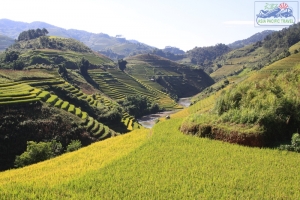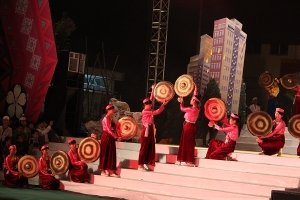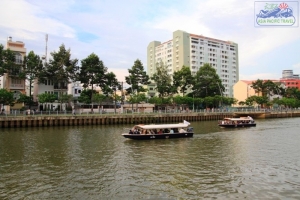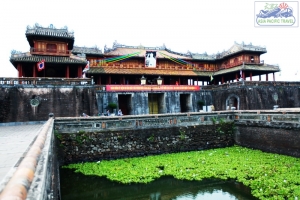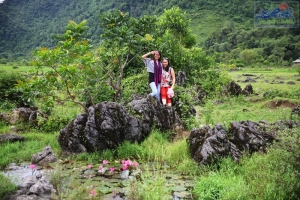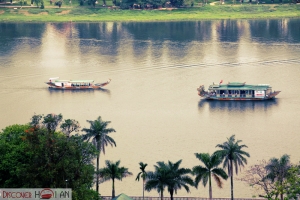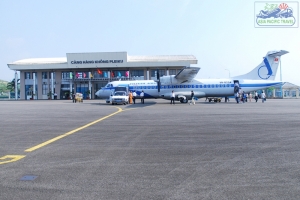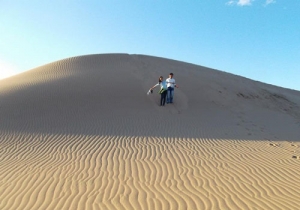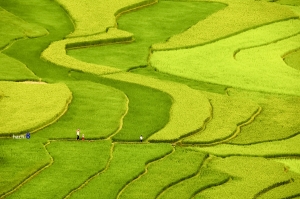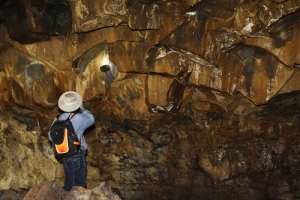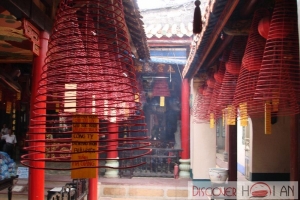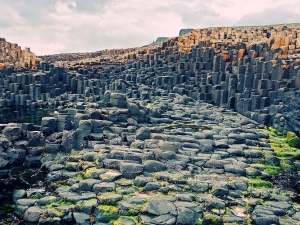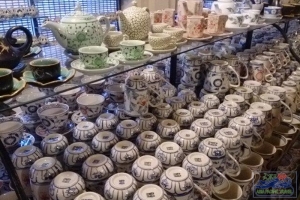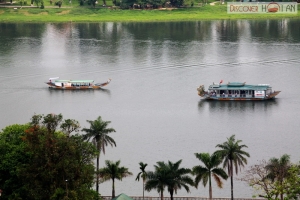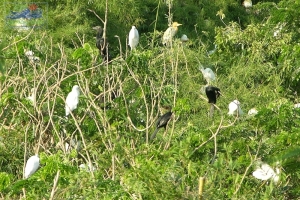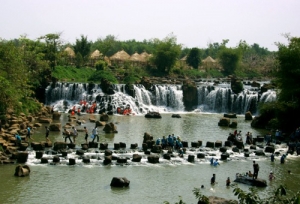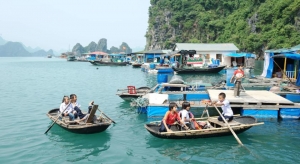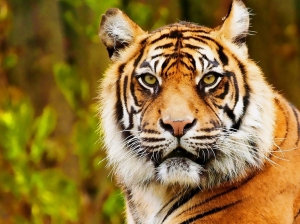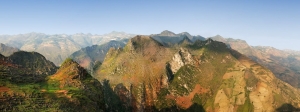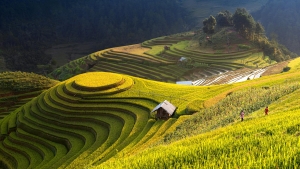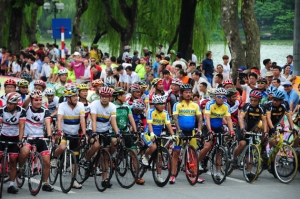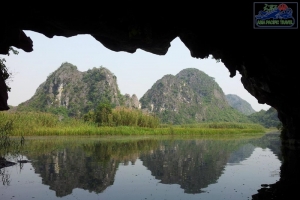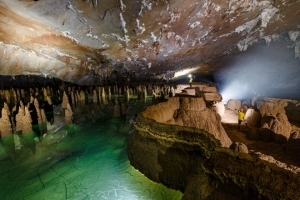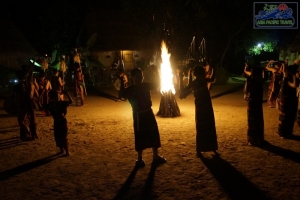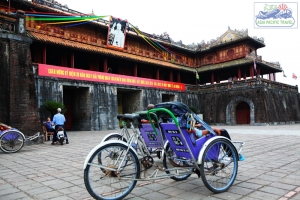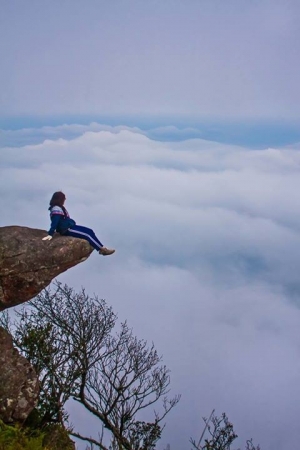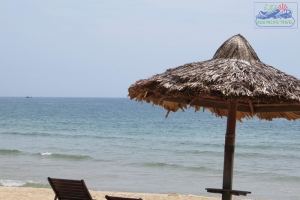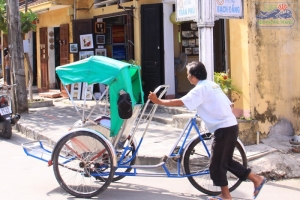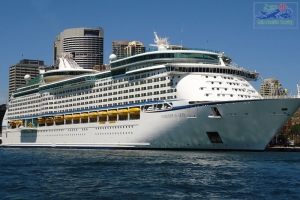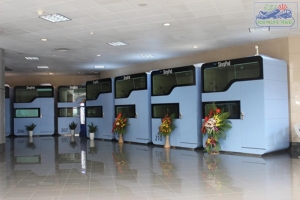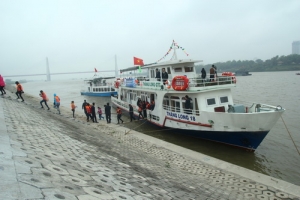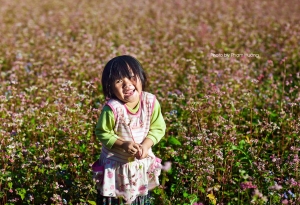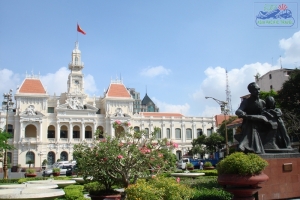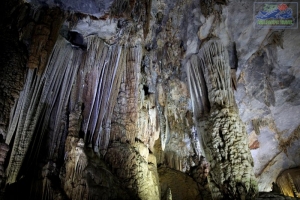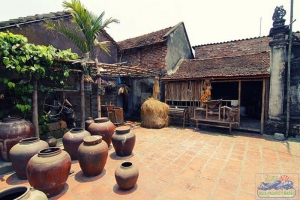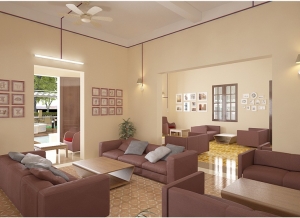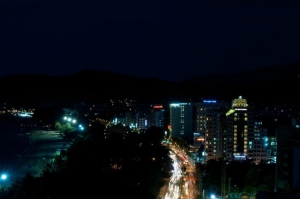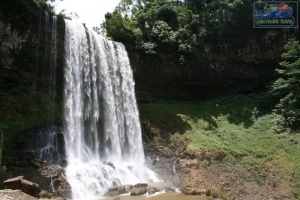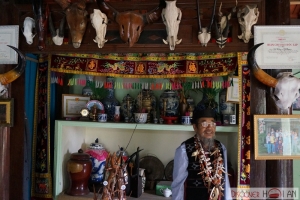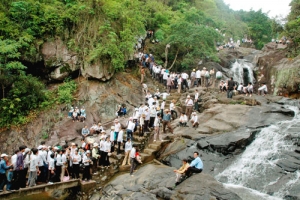As with the Chinese, the Vietnamese lunar calendar begins with the year 2637 B.C. It has 12 months of 29 or 30 days each, and the year totals 355 days. At approximately every third year, an extra month is included between the third and fourth months. This is to reconcile…
Most of habitants in Hung Yen province are farmers. Wet rice cultivation is their main livelihood, which is attached to the conquering process of the Red River Delta. Therefore, Hung Yen`s civilization and culture are the wet rice civilization and culture, and the Red River civilization and culture, too. Villages…
Locating in the southern west part of the Red river delta, Ha Nam is a half-mountain half-plain area and heavily agricultural dependent. The farmers here are now still preserving the ancient custom of worshiping the agricultural divinities; the most outstanding one is the worship for the four Dharma.
The cult of worshiping the tutelary genie was imported from China and had become part of Vietnamese people`s spiritual life and had been diversified. The village`s tutelary genie can be a genie coming from heaven like Phu Dong Thien Vuong, a genie of mountain like Tan Vien, a peson who…
Name of ethnic group: Dao ("Dao Quan Trang" (Dao with white trousers), "Dao Quan Chet" (Dao with tight trousers), "Dao Tien" (Dao with coins), "Dao Thanh Y" (Dao with blue dress), "Dao Do" (Red Dao), Man, Dong, Trai, Xa, Diu Mien, Lim Mien, Lu Giang, Lan Ten, Dai Ban, Tieu…
Name of ethnic group: Mong (H`Mong): (Mong Do, White Mong, Mong Lenh (Variety Mong), Mong Si (Red Mong), Mong Du (Black Mong) and Mong Sua (Man Mong). Population: 787,604 people (Year 1999). The Mong are concentrated in Ha Giang, Tuyen Quang, Lao Cai, Yen Bai, Lai Chau, Son La, Cao…
Cao Bang's culture Featured
Cao Bang's culture is diversified by the cultural harmony of many minority and majority groups. The main groups in Cao Bang are Tay, Nung, Dao, San Chi, Kinh, Mong and Hoa of whom Tay ethnic group accounts for 42 per cent, Nung ethnic group occupies 35 per cent, the rest…
The Vietnamese culture has always evolved on the basis of the wet rice civilization. Thus, the lifestyle of the Vietnamese population is closely related to its village and native lands. The Vietnamese culture has evolved from the basis of a wet rice cultivating civilization. Because of this, the lifestyle of…
A very popular belief among Vietnamese is the custom of the ancestor cult. In every household, an ancestor altar is installed in the most solemn location. Vietnamese believe that the soul of a dead person, even if dead for many generations, still rests along with their descendants on earth. The…
The family is the most important of all social units in Vietnam. In contrast to the focus on individualism in the West, the close-knit family is the basic unit in Vietnamese society. "Hieu", or filial piety, is one of the basic virtues. This refers to the idea of love, care,…
The role of man Featured
To be a man, one must take four important steps. First, he must know how to cultivate himself (Tu Than). In order to achieve this step, he must meet five requirements: 1) He must adhere to rites and ceremonies. 2) Strictly observe the family and social hierarchies (Le). 3) He…
The role of women Featured
Vietnamese woman are highly regarded by Westerners, who find them very graceful and gentle with all sorts of qualities that men look for. As young girls, they expected to keep their virginity until they get married and to getmarried only once in their life. As married women, they are expected…
The role of children Featured
Vietnamese children are polite and behave themselves at home and outside. They are subject to discipline, especially at school, and are taught to be absolutely obedient to their older siblings, relatives, and parents. They are also told to obey, respect, and listen to older people. At home children are expected…
Each passing year in a person’s life brings esteem and respect to their family and neighborhood. Formerly, at the age of 40 one was honored for being an old man or woman. During the Tran Dynasty in the 12th and 13th centuries, the 40 year old emperor gave up his…
In the past, building a house was considered one of the three most important events in Vietnamese life. These were purchasing a buffalo, looking for a wife, and building a house. Building an own house is very important to Vietnamese. It even shows his position in social structure. Vietnamese who…
Quảng Ninh, as well as being home to native Vietnamese, also features ethnic groups like the Dao, Tày, Sán Dìu, Sán Chay and Hoa. Essentially, they arrived from the north, having immigrated between 300 and 400 years ago, and are spread throughout the whole province. Population-wise, these groups account for…
Their dwellings are either earthen houses or mixed (half earthen, half on stilts). The Dao believe that in all creatures there are souls called hon or vân. When a living creature dies.Name: Dao (Thanh Y, Thanh Phán)Region: Occupying the highlandsCustoms and habits: Their dwellings are either earthen houses or mixed…
Name: Hoa (Hán)Region: Towns: Cẩm Phả, Uông Bí, Móng Cái; Districts: Đầm Hà, Hải Hà, Đông Triều. Customs and habits: The Hoa build houses with three compartments and two lean-tos and live close together. Families of a same lineage always reside together. In a Hoa family, the husband is the…
Name: Nùng.Region: Uông Bí Town, Tiên Yên and Ba Chẽ districts. Customs and habits: The Nùng mainly worship their ancestors, spirits, saints, Confucius, and Kwan Yin. Nùng villages are often built on hillsides. Language: The Nùng language resembles the Tày belongs Tày -Thái language. Culture: The Nùng have abundant folk…
Name: TàyRegion: Towns: Cẩm Phả, Uông Bí; Districts: Hải Hà, Ðông Triểu, Ba Chẽ, Vân Ðồn, Hoành Bồ Customs and habits: They live in villages and hamlets, either along stream shores or in plains and valleys. Houses were formerly built on stilts, but today modern changes can be seen in…



















